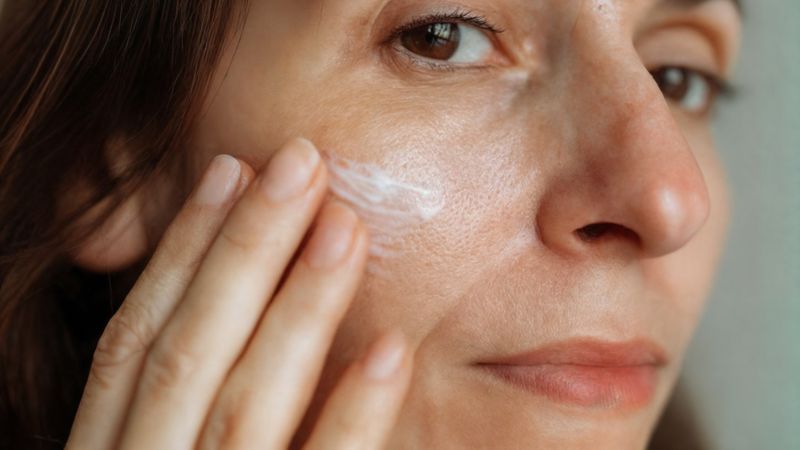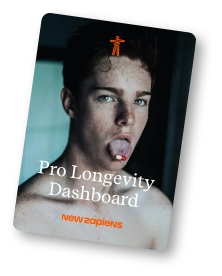The scientific approach to health, performance and longevity

Research on entrepreneurship shows that successful innovations are made by people who are actively shaping the future, instead of waiting for the future to occur. So why should we wait for severe symptoms of diseases to show up before we start taking care of our health?
Let’s go one step further in our business metaphor: it’s way too risky to build a product without testing your assumptions, gathering data, and iterating. So why should we approach our health with guesswork and generic advice? Isn’t your own health the most important “product” you are working on? In this article, I’ll explain my proactive approach to health.
If there's one thing I’ve learned from years of working with agile approaches like Build-Measure-Learn (Lean Startup) or Plan-Do-Check-Act (Deming-Cycle) or iterating in sprints (Scrum), it’s this: In uncertain and complex environments, a scientific approach („Hypothesis-Experiment-Iterate“) is key! And what’s more complex than your health?
Health is an experiment – so treat it like one
Human metabolism is a vast, adaptive system. Take Magnesium, for example: it's involved in over 300 enzymatic processes. If your body is running low, it won’t just shut down; it will prioritize. My body might prioritize differently than yours, based on genetics, lifestyle, and the current situation.
This is why symptoms alone rarely tell the whole story. Fatigue, brain fog, or muscle cramps could mean a Magnesium deficiency — or not. Maybe another bottleneck, like low Sodium, could cause the cramps.
Instead of blindly supplementing, I follow an iterative approach:
- Measure – Test blood markers to identify potential deficiencies.
- Analyze – Use data to make informed decisions on supplementation or diet changes.
- Adjust – Implement changes, then re-measure after a set period.
Just like in agile product development, it’s all about small, controlled experiments instead of reckless trial and error.
If you are curious to dig deeper into the N=1 experimentation topic, this article by Nick Norwitz could be an inspiring next step: Paving the path for n=1 citizen science.
The foundation: essential vs. semi-essential micronutrients
When optimizing health, I focus on essential and semi-essential micronutrients:
- Essential micronutrients – The body can’t produce them, so we must get them from food or supplements. These include vitamins, (trace) minerals, amino acids, and fatty acids (e.g., EPA and DHA Omega-3s).
- Semi-essential micronutrients – The body can produce these, but often not in sufficient amounts (especially under stress or aging).
My hypothesis on (semi-) essential micronutrients
If I ensure optimal levels of all essential and semi-essential micronutrients, my body has the best possible foundation to handle stress, infections, and daily performance demands.
From my point of view, a proactive approach like this is way better than just reacting to symptoms, which might only appear when the body has already been compensating for too long.
Why generic advice can be risky
You've probably heard statements like: "Take L-tyrosine to boost dopamine for motivation!" Sounds good, right? But here’s the problem:
Dopamine synthesis doesn’t just depend on Phenylalanine or Tyrosine. It also requires cofactors like Vitamin B6, Iron, and Copper. If any of these are missing, extra Phenylalanine or Tyrosine won’t help with your motivation. (Remark: this could be one reason why studies or experience reports sometimes show that one substance is not effective.)
Or consider Vitamin D: If you assume you're deficient and take high doses without testing, you might overshoot and cause calcium imbalances, leading to kidney stones or arterial calcification or decrease of bone density. That’s why I always measure before and after making changes.
Strategic supplementation: anticipate, don’t just react
While measuring is crucial, some situations call for proactive adjustments:
- Performance optimization – If I'm preparing for an endurance event, I do not wait for my next blood work to be sure that I am running out of electrolytes, I increase my minerals' intake in advance.
- Lifestyle factors – If I know I’m getting little sun exposure, I monitor vitamin D levels more closely.
- Drug interactions – Some medications deplete nutrients (e.g., statins lower CoQ10, birth control pills affect B vitamins). If I had to take medication long-term, I would factor this into my health plan.
This isn’t about blindly taking supplements — it’s about strategic precision.
Final takeaway: health, the agile way
- If you care about performance and longevity, stop relying on generic health advice. Instead, approach your body the way you'd approach building a high-performance system:
- Test, don’t guess – Data beats assumptions.
- Measure and iterate – Small adjustments, tested over time, lead to better results.
- Think holistically – Deficiencies and imbalances are often interconnected.
Because just like in business, what you don’t measure, you can’t improve. And maybe it’s a good idea to ask someone with expertise and experience to accompany and coach you on your first steps.
Author: Heiko Bartlog
Mentor for Vitality with special expertise in Essential Micronutrients: Measure – Plan – Optimize – repeat! With years of experience as a Project Management Consultant, Coach for Leadership and Agility, Facilitator for Co-Creation and Effectuation Expert. https://vital.bartlog.de/ (beta)




